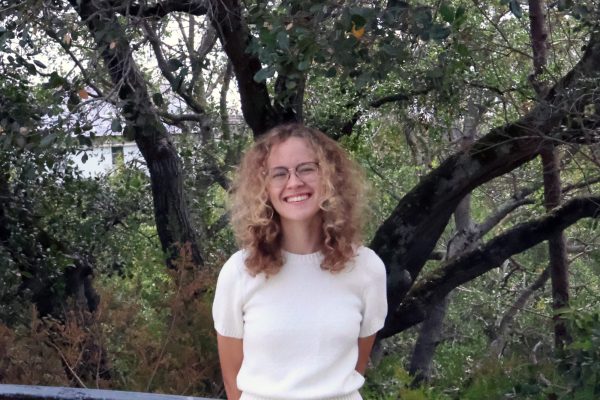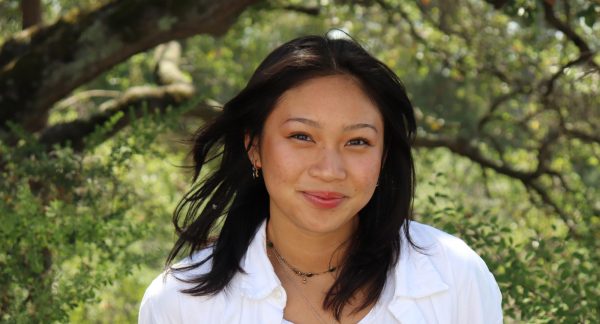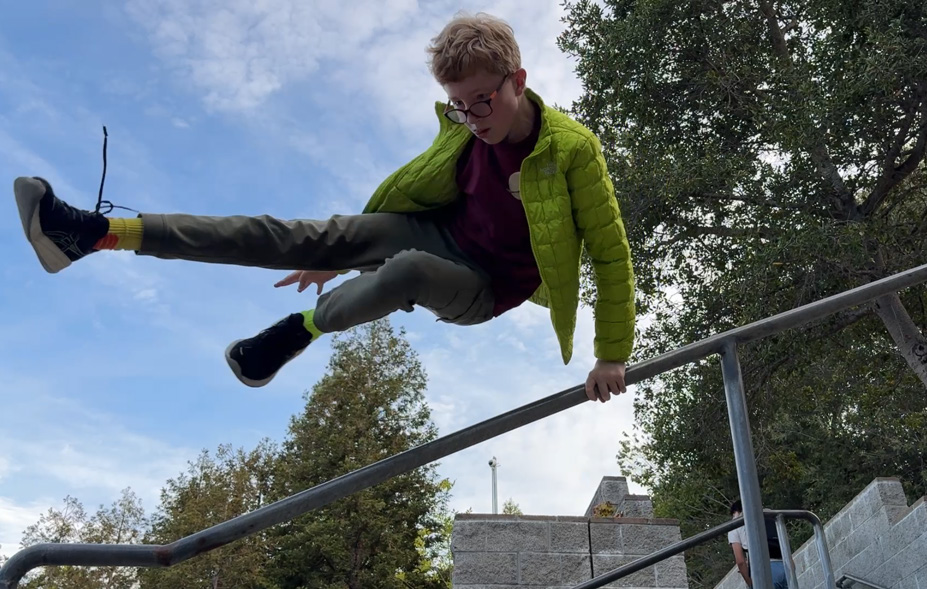Weekly meetings of the Gender-Sexuality Alliance, the Affinity Mentorship class, presentations on microaggressions, ASB Social Justice Liaisons, a Pride flag flying high in front of the school — Piedmont has worked to grow over the past couple of years to provide more inclusive initiatives for transgender and queer students. But with the reelection of President Trump and nationwide opposition to LGBTQIA+ rights becoming increasingly prevalent, many queer Piedmont students have felt a sense of decreased inclusivity in their community and increased fear for their futures.
Immediately following President Trump’s inauguration in January, several executive orders were issued regarding the rights of queer individuals. According to PBS, these actions have ranged from placing restrictions on federal gender markers, curtailing gender-affirming care, and limiting trans athletes’ participation in sports. With opposition to trans rights continuing to emerge on both a legislative and social level, concern for the lasting impacts of the president’s decisions has risen among genderqueer students.
“I feel like I’ve gotten from a lot of people, ‘Oh, it’s just four years, all you have to do is wait out four years and then it’s gonna be fine’,” trans male sophomore Luke said. “But irreversible damages can happen in four years. Trans people don’t have the luxury of just waiting it out for four years.”
For many, the treatment of queer issues as matters of political talking points comes across as dismissive of the real-world implications these decisions bear on their lives and autonomy.
“If you’re queer, it’s really hard to put politics aside, so to speak, when the Republican politics are fundamentally attacking our ability to live. I can’t [move to] a state that wants to ban my right to marriage, where the majority of people that I walk past think that I don’t deserve basic American rights,” said GSA president and senior Ella Hughes.
PHS alum and trans male Sohrab Ford said despite going to a liberal college he worries about threats to queer students in regards to budget cuts targeting the humanities and the arts, places where Ford says many queer and trans students are concentrated.
“[I worry about the future in regards to] everything from climate change to the rising rates of depression among young people and all of these different things. So I think that transphobia is just like a symptom of a bigger structural issue in the way that the world kind of prioritizes you,” Ford said.
Though these governmental shifts and the threats to safety that they pose have furthered some students’ decisions to remain publicly closeted, other students said they were inspired to demonstrate more unapologetic expressions of their identities in defiance of bigotry.
“It’s very sickening to see how much a group that has done relatively nothing is getting targeted so much. Being a part of that group, it’s bitter, and it’s upsetting, [but] it makes me want to be myself more, because if I disgust someone so much for simply existing, then I want to see them disgusted by me existing. It’s a form of resistance, I guess,” trans female sophomore Marie said.
Beyond high school, some trans and genderqueer students said evaluating ‘safety’ in certain regions of the country alongside more typical criteria of ‘tuition fees’ or ‘acceptance rate’ is necessary when constructing college application lists or determining post-graduation plans.
“I have my college spreadsheet, and at the top it says ‘we will be blacklisting Texas and most Southern states’. There are some very good schools for my intended major in the South which I have struck off the list specifically because of my queer identity and the threat I feel like those places pose because of it. There is a website called the Campus Pride Index, which measures how queer- and trans-friendly certain schools are, so I’ve looked at that,” said Chelsea, an upperclassman at PHS who identifies as a demigirl existing on the agender spectrum.
Luke said he shared a similar experience, clarifying universities’ support for gay students as not necessarily extending to trans ones. He cited housing guidelines, the presence of administrative support systems, and communities’ political alignments as especially impactful on his decisions.
“I have a lot of the country just off-limits, as a trans person. Obviously it really depends on the school — a lot of schools have a queer culture, but having a queer culture doesn’t necessarily mean having a trans culture or being very accepting towards trans people — I’d say [that’s] probably the number-one thing that goes into account when I’m looking at schools,” Luke said.
Despite Piedmont’s diversity initiatives on campus being valued for the critical education they promote, some students outside of the gender binary said they felt Piedmont’s largely white and non-genderqueer student body can contribute to feelings of ostracization.
“I feel like Piedmont has a strange relationship with identity politics because there’s this broader feeling of discomfort with minority groups,” Chelsea said. “In Piedmont, [this issue] becomes unique because you have factors such as race and socioeconomic status that tend to be a lot more uniform, so when you see things like gender identity that are different, it becomes highlighted.”
This issue of othering is further heightened for those who are members of multiple marginalized communities, with students often feeling social pressure to conform to expectations that allow their identities to be seen as more palatable to the general public.
“My experience in Piedmont is often characterized by a kind of intersectional discrimination — as somebody who falls into those boxes of what is considered the ‘correct’ way to be queer, I am fine being out, but everyone around me is not privileged enough to have the presentability politics fall in their favor,” Hughes said. “Piedmont is generally socially liberal in appearance, but whenever it comes to how people treat each other at the schools, presentability is everything, almost above humanity.”
Ford said something he learned going through Piedmont as a trans person was when someone says something transphobic or racist, whether intentional or not, he can interact with that person more charitably after considering the beliefs that person has grown up with that have led them to say hurtful words.
“I think the main thing that I learned at Piedmont is that everyone’s coming from somewhere,” Ford said.
Additionally, Ford said this mindset is a way to create growth for bigoted people.
“If we acknowledge that [transphobia and hate] comes from somewhere, then we can actually address it, versus if we just say that people are bigoted and that’s the way they are, then we can’t do anything about it. That doesn’t help us in any way,” Ford said.
Many trans students identified a willingness to educate themselves and deconstruct internalized cisnormativity as initiatives their non-queer classmates could take to become better allies. Chelsea said that while they understand avoidance and ridicule as common behavioral responses to feeling uncomfortable discussing or being uninformed on a subject, practicing respect for all gender identities is critical to being an educated citizen of the world.
“It’s always good to be more well-informed, especially when it comes to other people’s identities,” Chelsea said. “If you respect someone as a person, that means respecting the parts of them that maybe you don’t understand and maybe you will not ever fully understand, because that isn’t your experience, but you should at least try.”
Categories:
Pride and Prejudice
Trans and genderqueer students speak on their experiences at Piedmont
Zoe Snyder, A Closer Look Editor
Apr 24, 2025
0
Donate to The Piedmont Highlander
Your donation will support the student journalists of Piedmont High School. Your contribution will allow us to purchase equipment and cover our annual website hosting costs.
More to Discover
About the Contributors

Zoe Snyder, A Closer Look Editor
Zoe Snyder (11) is the ACL co-editor for TPH. Outside of TPH, she enjoys reading, running on her school’s cross-country team, building robots, parliamentary debate, and pretending to be a lawyer in Mock Trial.

Clea Villaluz, Design Editor
Clea Villaluz (12) is a Design Editor for TPH. In her free time she enjoys spending time with her parents and pets.





























